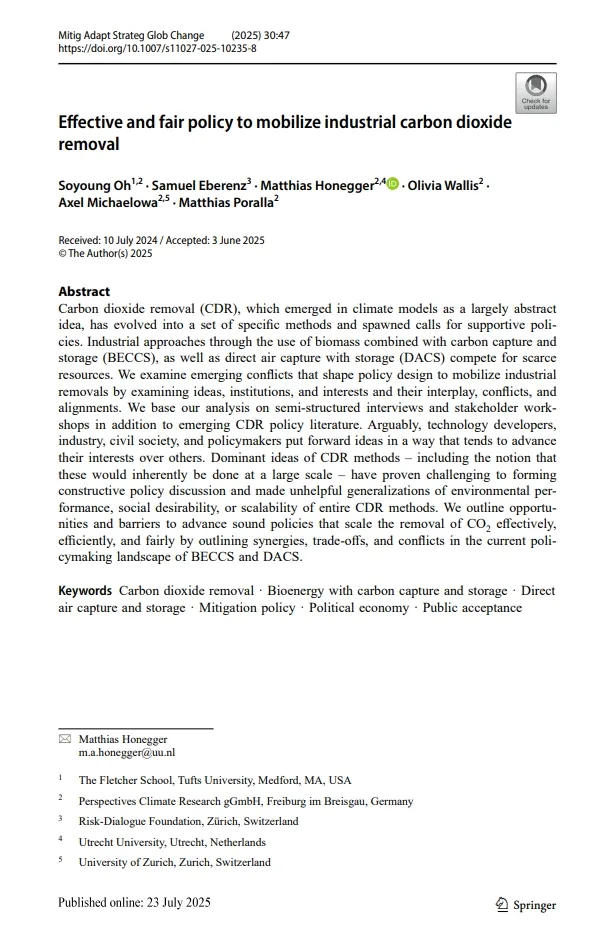New study outlines fair and effective policies for industrial carbon removal

- 23/07/2025
Perspectives has published a new open-access article in Mitigation and Adaptation Strategies for Global Change (Springer Nature), titled “Effective and fair policy to mobilize industrial carbon dioxide removal.” The study is part of the CDR-PoEt (Carbon Dioxide Removal: Policies and Ethics) project, funded by the German Federal Ministry of Education and Research (BMBF).
As carbon removal technologies such as BECCS (bioenergy with carbon capture and storage) and DACS (direct air carbon capture and storage) advance toward real-world deployment, policy frameworks remain fragmented. The paper explores how institutional dynamics, political interests, and conceptual ambiguity shape the development of CDR policies.
Key findings include:
- Existing policies for BECCS and DACS are shaped by diverse stakeholder interests, often leading to suboptimal outcomes in terms of effectiveness, efficiency, and fairness
- A balanced policy mix is critical: Governments should combine demand-pull (e.g., carbon contracts for difference, procurement) with supply-push (e.g., R&D support) to de-risk early-stage deployment. But unchecked subsidies are risky: without regular evaluations, public support could entrench incumbents
- Shared concepts and clear terminology are crucial. Ambiguity in language and framing can obscure trade-offs and weaken policy alignment
- Policy measures should account for co-benefits and negative impacts across the entire value chain, particularly for BECCS, where the type and sourcing of biomass feedstocks significantly influence environmental and social impacts
The authors call for an adaptive, transparent, and socially just approach to CDR governance as countries move toward net-zero targets.
Authors: Soyoung Oh, Samuel Eberenz, Matthias Honegger, Olivia Wallis, Axel Michaelowa, and Matthias Poralla.
Read the full article here.
Recent publications under the CDR-PoET project:


